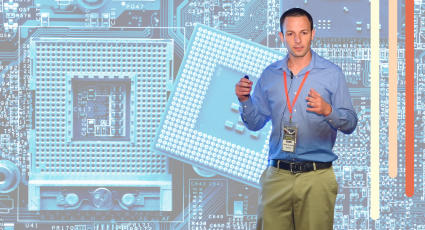In recent years, in-memory computing has emerged as a groundbreaking shift in how computers operate, especially in how they handle data processing. Traditional computers rely heavily on the CPU to perform calculations using information stored in memory, resulting in significant energy and time costs due to data transfers between components. This transfer bottleneck has only intensified as processors have become faster and memory units larger.
Professor Shahar Kvatinsky and his team, including Ph.D. student Orian Leitersdorf and researcher Ronny Ronen, have tackled this challenge head-on. Kvatinsky has focused on overcoming what’s known as the “memory wall problem,” where computations are slowed by the need to move data between memory and the processor. Their work has paved the way for a new approach in computer architecture, where some calculations are performed directly within memory, alleviating the “traffic jams” of data transfer. This innovation has vast implications for fields like AI, finance, and bioinformatics, which demand high-performance computing.
But there was still a gap: software. Existing software has always been written for classic computers, where the processor handles computations. Kvatinsky’s team saw the need for a new programming approach compatible with in-memory computing. The result? PyPIM is a platform that allows software developers to write code for processing-in-memory (PIM) computers using familiar languages like Python. This platform translates Python commands into machine instructions that are executed directly in memory.
The team has also introduced a simulation tool to help developers measure PyPIM’s performance improvements over traditional computing setups. They recently presented their findings at the IEEE/ACM International Symposium on Microarchitecture, showcasing PyPIM’s potential to simplify software development and boost computational efficiency.
We are proud to share that the paper published by the ASIC^2 research group, led by Prof. Shahar Kotinsky, has won the Best Paper Award from the IEEE Computer Society!
The article, “AritPIM: Fast Stateful Arithmetic for Processing-in-Memory,” was published in IEEE Transactions on Emerging Topics in Computing.
The research was led by future doctoral student Orian Leitersdorf, together with the significant contributions of Roni Ronen, Dean Leitersdorf, Yonatan Gal and Mor Dahan.
In the paper, the research group presented groundbreaking algorithms for in-memory computations, which support all basic arithmetic operations (addition, subtraction, multiplication, and division) in fixed point numbers (with significant improvements over previous algorithms) and, for the first time, also in numbers with a floating point.
Full Article



